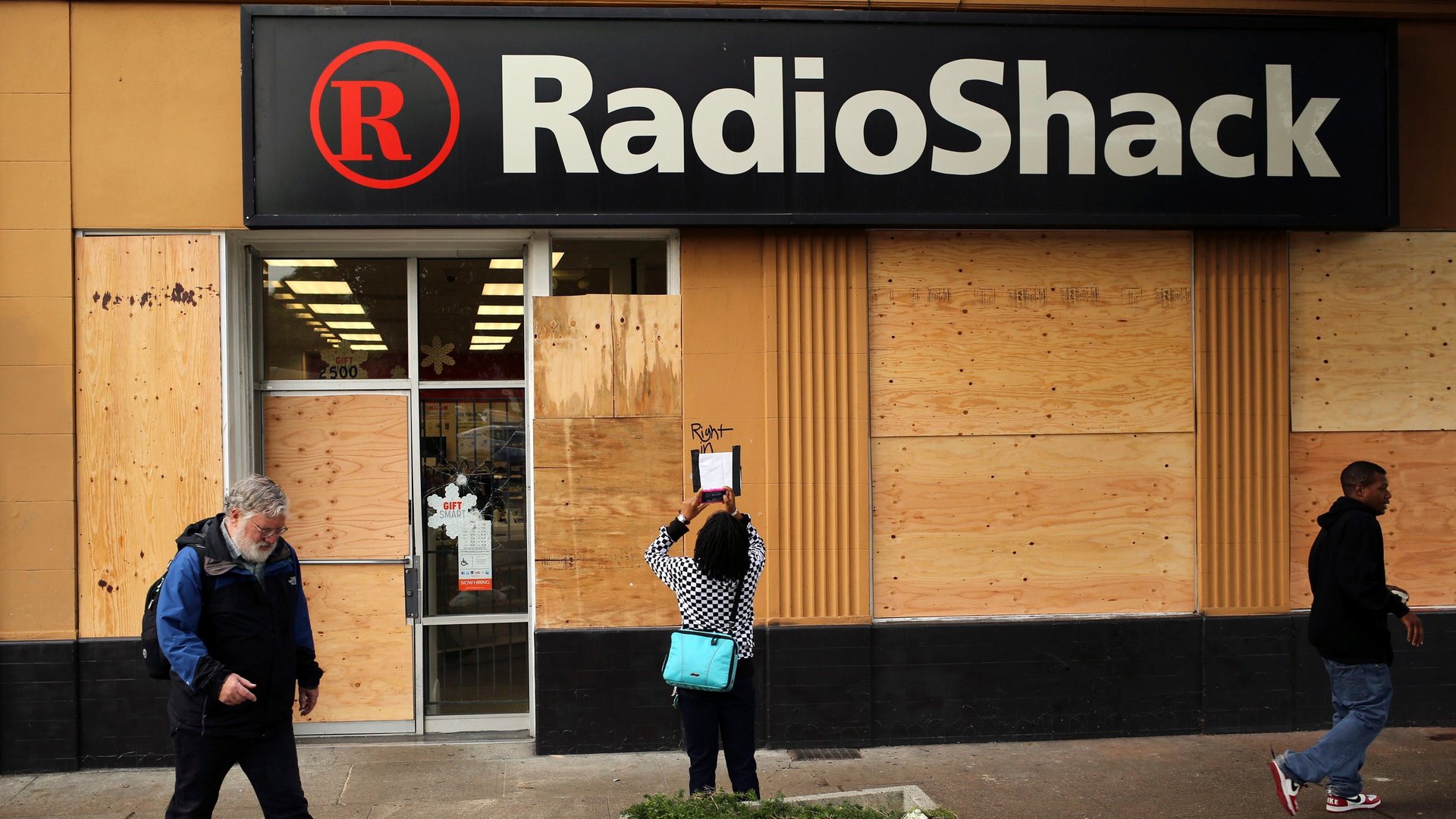RadioShack’s slow-motion train wreck was painful to watch
I’ve written about a lot of corporate downfalls, the threats to brand relevance, and the effects of bad decisions made at the board level. None of it has pained me the way RadioShack’s story has.


I’ve written about a lot of corporate downfalls, the threats to brand relevance, and the effects of bad decisions made at the board level. None of it has pained me the way RadioShack’s story has.
I covered the retailer for a newspaper in Fort Worth, Texas, where RadioShack is headquartered. This was about a dozen years ago, when RadioShack was a big local employer and a ubiquitous sponsor of area nonprofits and cultural events. It is neither of those things now—just as it is no longer anywhere near the forefront of innovation in the consumer electronics business.
Back in 2003, RadioShack knew that its thousands of tiny stores were ill-equipped to handle the new craze for big-screen TVs. That was Best Buy’s business. So RadioShack smartly focused on batteries, cords, and (pre-smartphone) mobile handsets. The margins were awesome.
But then a slow-motion train wreck began. The initial hint for me was when I bought my first iPod. With Best Buy sold out, I found one, click-wheel and all, deep in the housewares section of a mediocre department store at a dying mall. RadioShack didn’t even have a distribution deal with Apple then; that wouldn’t come until mid-2005.
Another big hint came in 2006, when I broke a story about falsehoods on the CEO’s resume. The board dismissed my investigation (pdf) out of hand and publicly backed the CEO, then fired him a week later. The board demonstrated it lacked either the talent or the engagement (perhaps both) to handle a crisis—and there would be bigger crises to come, each leading to terrible decisions about management, strategy, or financial structure.
Between the resurgence of “maker” culture and the enthusiasm of its most recent CEO, RadioShack should have survived—even thrived. But after so many missteps in what became a lost decade, its last gasp was too little, too late.
Maybe this was so sad to watch because so many of the company’s wounds were self-inflicted. Maybe it’s because while living in Fort Worth for five years, I just got too close to it—too attached to the sight of the old Tandy Center, where RadioShack once had its headquarters, lit up at night with messages tied to goings-on in town, too concerned about neighbors whose livelihoods were tied to a company that couldn’t seem to get out of its own way.
The purists in my profession might argue there’s no excuse for a journalist ever losing objectivity. But I don’t mind saying my heart breaks a little for a city, and for a corporate legacy, that simply deserved better.
This was published as part of the Quartz Weekend Brief. You can sign up for our email newsletters here.